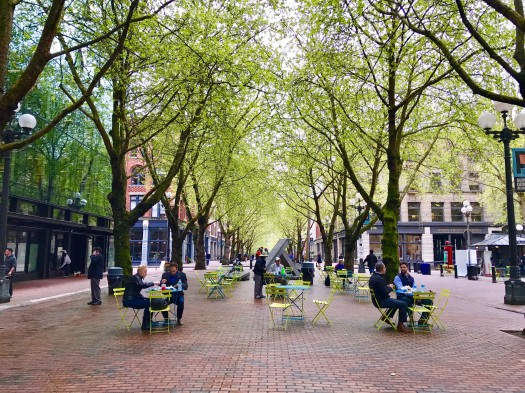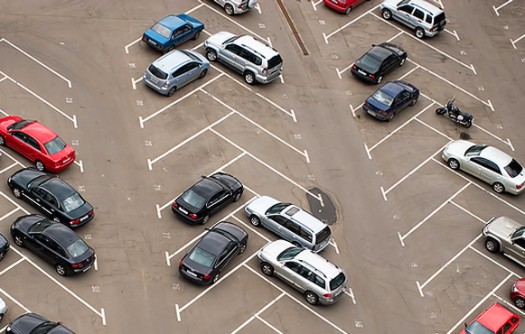Public Policy
‘So all we have to do is…’ call bullshit
Chuck Marohn was in my town last week with his better-than-ever demonstration of the lies we tell ourselves about infrastructure finance. Chuck’s message and that of Joe Minicozzi prod us to get our arms around the math. And that’s a crucial message. But, jeez, our problem is way bigger. Thanks to the never-ending hangover from…
Read MoreThe (Irrational) Criminalization of Walking
If you’ve ever found yourself wondering, if only there was a concise resource available that articulates key reasons why walking is so much less prevalent in the modern age; why this presents unanticipated threats to safety, health, the environment, child development, and social equity; and what we in our communities can do to effectively advocate…
Read MoreCNU 25 Seattle: Highlights from the silver anniversary
Last week was the 25th annual Congress for the New Urbanism, where 1,400 city planners, architects, developers, economists, and mayors from around the world gathered to discuss the future of cities. Hosted in collaboration with the Urban Land Institute, comprised of an additional 6,000 developers and builders, the two events brought significant inspiration and insight…
Read MoreFlorida Man Fails to Fix Everything, Reconsiders Position
You know magical thinking about cities is fading when one of the gurus says stuff like this: “My optimism has been tempered and I’ve become more of a realist.” That’s Richard Florida, the guy who inspired a (mostly unsuccessful) stampede to hipness 15 years ago with the publication of The Rise of the Creative Class:…
Read MoreParking is a Commodity, Not an Experience
Yesterday the Atlantic ran a piece on the Great Retail Meltdown of 2017 which, to summarize, tied the present culling of the retail herd to three phenomena: the rise of online shopping; a half century of overbuilding retail space; and the present shift in spending from goods to experiences. In short, with people increasingly getting…
Read MoreFeared Dead, Math’s Back: Planning nerds vindicated
Planning for the future tends to be a humiliating exercise. Whatever’s headed our way is both inevitable and unpredictable. Yet because it brings with it the consequences of decisions we made or ducked in the past and now have to manage or endure in the present, we have to take a stab at decisions that…
Read MorePlacemaking: Geek niche or the root of pretty much everything?
When I first developed my interest in placemaking twenty years ago it was driven by design. I was a brand advertising person which, by necessity, involves the study of behavior. Not just of people but of their context. Where and how people choose to live, I learned, provided a lot of insight into the kinds…
Read MoreHey, Buddy: Adult friendships and the future of our communities
David Roberts over at Vox posted a new piece recently — “How our housing choices make adult friendships more difficult” — that really got me thinking. In it, he builds upon ideas previously explored in The Atlantic and makes a compelling case that forging new relationships as an adult — the ones we characterize as…
Read MoreBubble Burst Strategy No. 1: Do something. Now.
You know things are getting dicey when the outgoing president of the United States feels obliged to remind us there’s still hope for American democracy at about the same time the incomer is on Twitter alleging (again) that America’s democratic institutions are plotting against him.
Read MoreWhat Makes a Good Main Street Work?
Shortly before this essay’s original posting, I participated in a terrific conference called From Main Street to Eco-Districts: Greening Our Communities, hosted by a chapter of the American Institute for Architects in Corning, New York. Held a block off of Corning’s own, magnificent “Main Street” (actually named Market Street), and including many of the people who…
Read More



